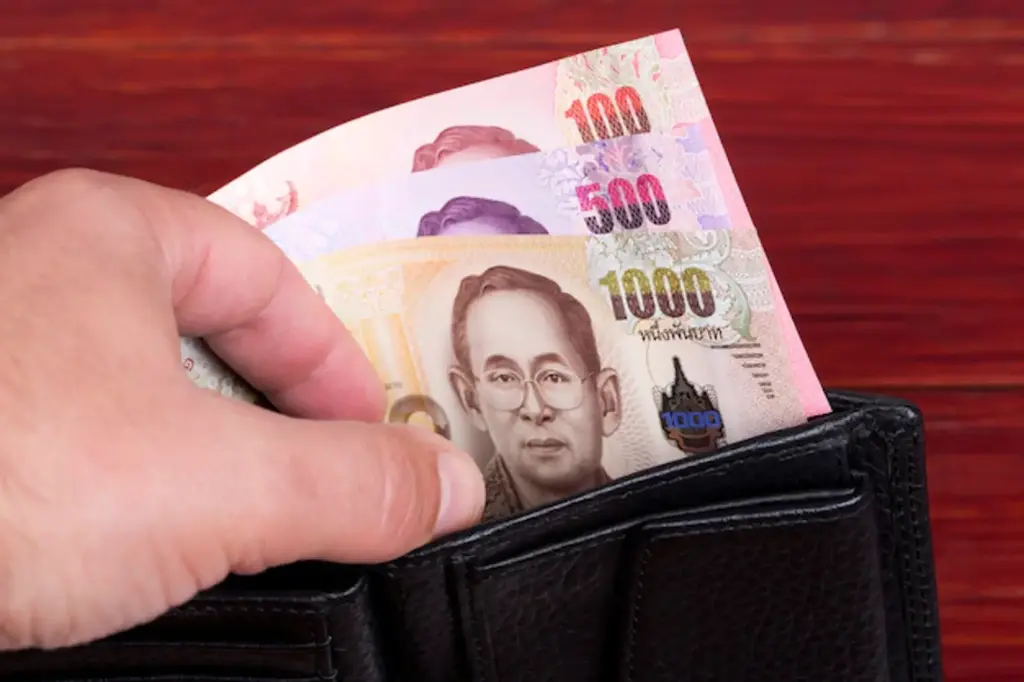Business
Thailand’s Economy is on Fire, But is it too Hot to Handle?
Published
11 years agoon
By
CTN News
BANGKOK – As well as dousing each other liberally with water during the recent Songkran festival to mark the country’s traditional New Year’s Day holiday, Thais will have spent freely on parties and celebrations, on making merit, on travel and on consumer and luxury goods
The World Bank forecasts the Thai economy will grow 5.3 per cent this year, up from its 5 per cent prediction in December, while next year GDP growth is expected at 5 per cent, compared to an earlier forecast of 4.5 per cent, the lender said in a report this month.
The baht has risen around 4 per cent against the dollar this year and is at levels not seen since the Asian financial crisis in 1997.
As political problems ease, Thailand is emerging as the darling of global investors right now.
“Thailand is on fire in the short term,” said Paul Krake of View from the Peak. “There is excess capacity there but you don’t have real bad loan problems. Personal debt is growing but it’s not really a problem.”
The prime Minister Yingluck Shinawatra’s cabinet last month approved a plan to borrow 2 trillion baht (Dh250 billion) for long-term infrastructure projects after the floods which devastated the country in 2011.
Luxmon Attapich, the senior country economist for Thailand at the Asian Development Bank, said that of the government’s infrastructure budget, between 30bn and 40bn baht would be disbursed by the government next year.
Water management spending is a big part of the efforts to ensure there is adequate infrastructure in place in case of future flooding.
Some 80 billion baht would be spent next year on the water-management project, following the 35bn-40bn baht invested in the project this year, Ms Luxmon said.
She listed the key challenges facing the country as off-budget borrowing by the government, high public debt, how to increase revenue collection, and governance, but she said there were no critical signs of a bubble developing in the Thai economy.
The Thai stock exchange has risen 48 per cent in the past 14 months, but it has shown signs of slowing. And while the property price index is on the rise, it is not on a sharp upwards curve, she said, while calling for vigilance.
This month, the Economic and Business Forecast Centre of the University of the Thai Chamber of Commerce (UTCC) unveiled a decidedly upbeat outlook for the Thai economy.
A UTCC poll showed that Thai consumer confidence last month hit its highest point since the army coup in 2006, and it expects the economy to grow by not less than 5 per cent this year.
“The continued rise in consumer confidence will ensure the country’s strong economic expansion this year because consumption will be a major factor driving economic growth,” Thanavath Phonvichai, the director of the UTCC’s Economic and Forecasting Centre, said in an interview.
The Consumer Confidence Index was at 84.8 points, up from 84 in the previous month, and it has risen continuously for six consecutive months.
“Domestic consumption should grow by 4-5 per cent this year, while tourism expansion will also help to spur the domestic economy throughout the year.”
As well as the borrowing bill to finance infrastructure projects, consumer confidence was boosted by a recent spike in Thailand’s SET Index, the stronger baht and decreasing domestic oil prices.
Low interest rates and easy monetary policies in the United States, the European Union and Japan have prompted a massive outflow of capital into emerging markets, and foreigners are rushing to buy into Thai funds.
The emerging-markets investor Mark Mobius has more than a quarter of his US$18bn Templeton Asian Growth fund, the biggest in the region, invested in Thailand.
The influx of capital has boosted property and stock prices, prompting fears of an asset bubble that could burst once the funds are withdrawn.
Commenting on risks to the broader South-east Asian region, Bert Hofman, the World Bank’s chief regional economist, said: “Continued demand-boosting measures may now be counterproductive as it could add to inflationary pressure … a strong rebound in capital inflows to the region induced by protracted rounds of quantitative easing in the US, EU and Japan, may amplify credit and asset price risks.”
Critics say the stimulus measures have stoked spending and contributed to rising household debt. The Bank of Thailand said it will monitor “persistently high” credit growth. About 1.25 million Thais have taken up the car-buying incentive the government introduced to boost domestic consumption after the 2011 floods, helping to drive local car sales to a record last year.
Average Thai household debt rose from 82,485 baht per household in 2002 to 134,900 baht in 2011, according to the National Statistics Office.
“Is the baht too strong? Yes. Are the banks too expensive? Yes. But these are not really a problem. As much as we macro bears like to say these are a problem, these are not. Thailand is a bit of a darling. On the whole it’s in great shape,” said Mr Krake.
The World Bank believes the main challenge next year for Thailand’s growth continues to be the high uncertainty in the global economic prospects, particularly related to the euro-zone crisis.
Asked about how potential political issues could become a problem, Mr Krake said: “Until a problem becomes a crisis, they just stay problems. Economic factors take over.”
As the water pistols spray and talc-infused water arcs through the air, the forecasts are for spending during Songkran to increase 10.42 per cent, highlighting the real economic benefits of the feel-good factor. – Clifford Coonan
The CTNNews editorial team comprises seasoned journalists and writers dedicated to delivering accurate, timely news coverage. They possess a deep understanding of current events, ensuring insightful analysis. With their expertise, the team crafts compelling stories that resonate with readers, keeping them informed on global happenings.






























